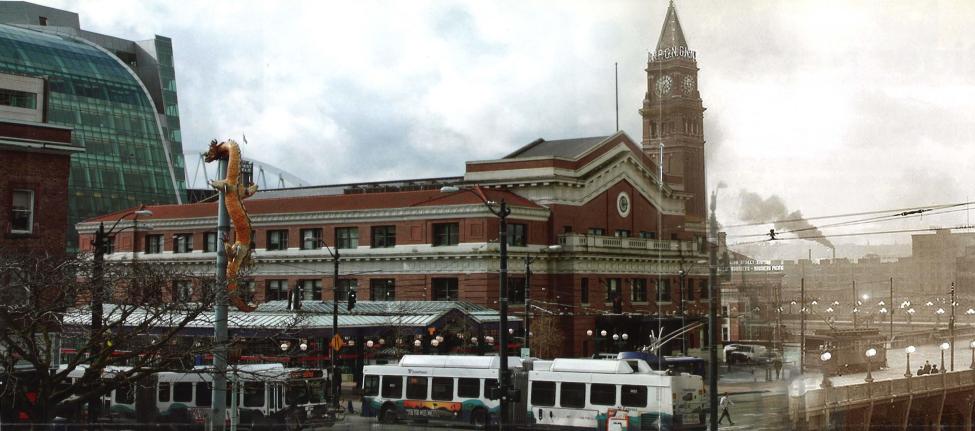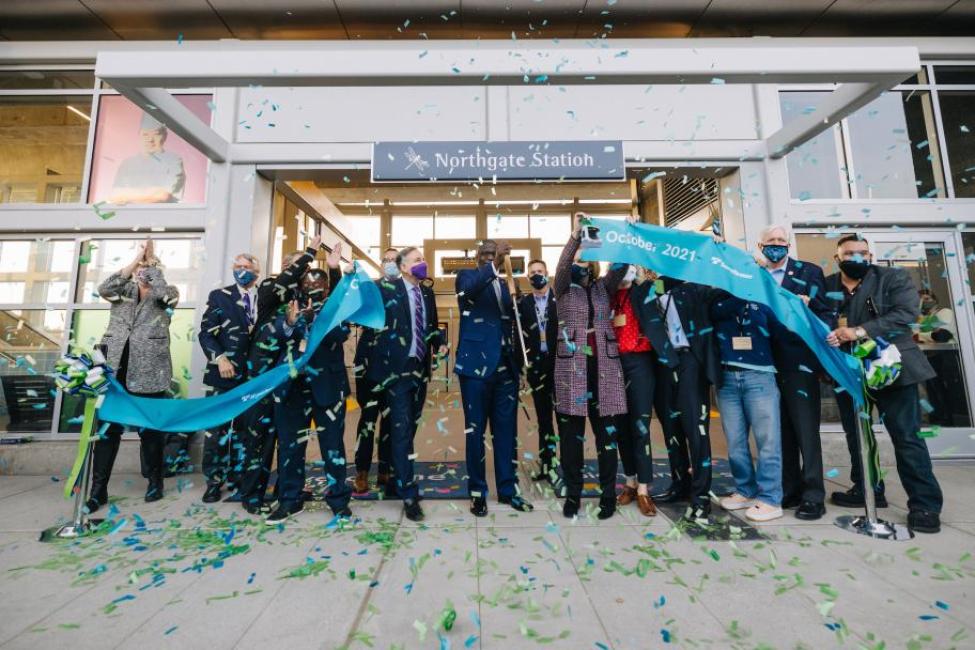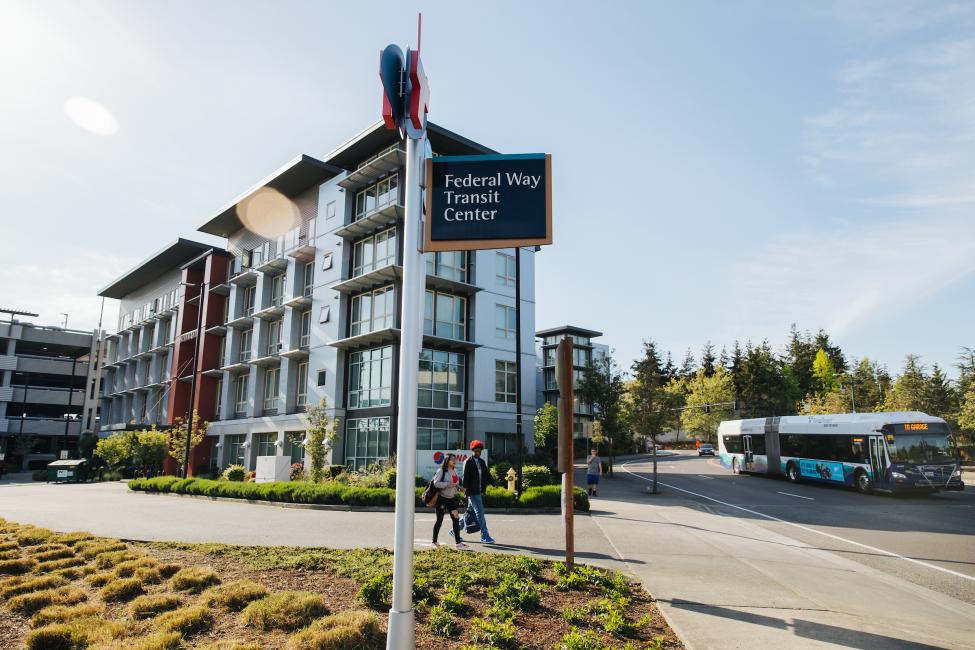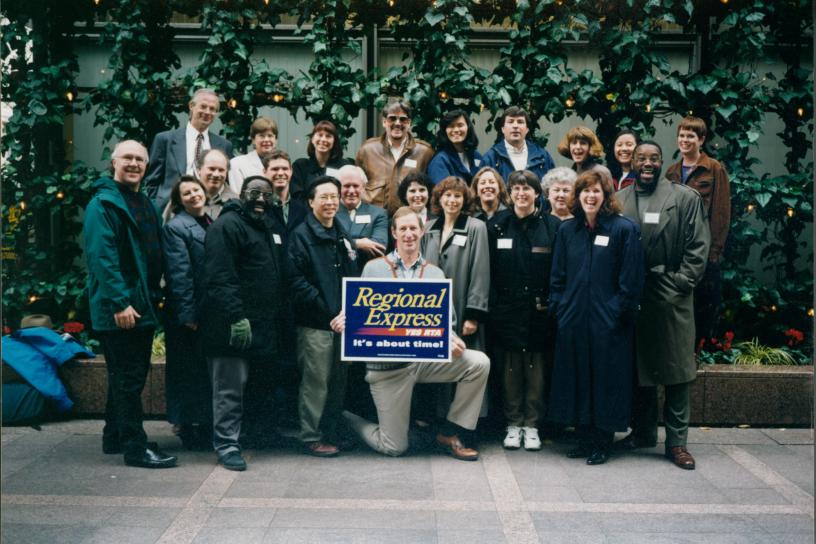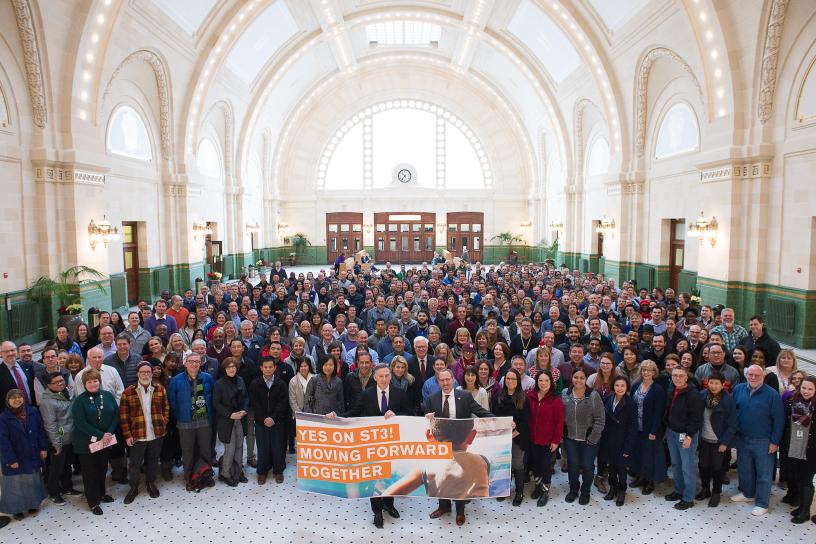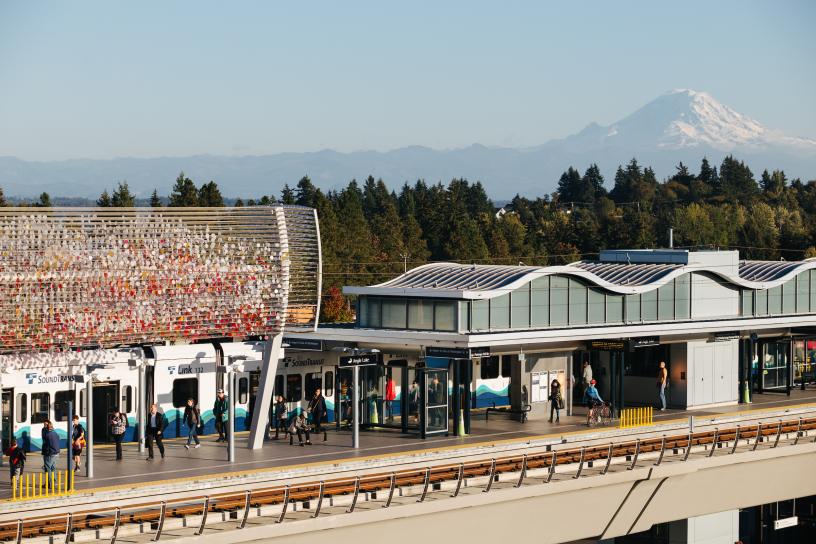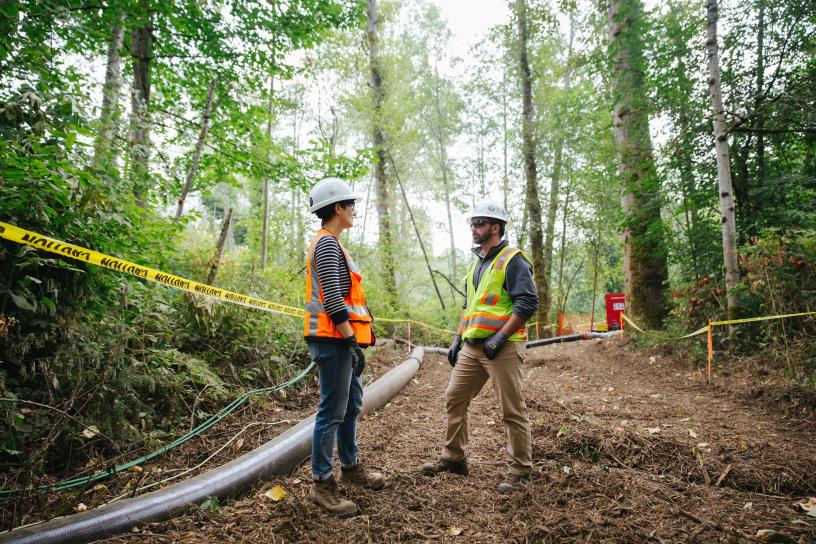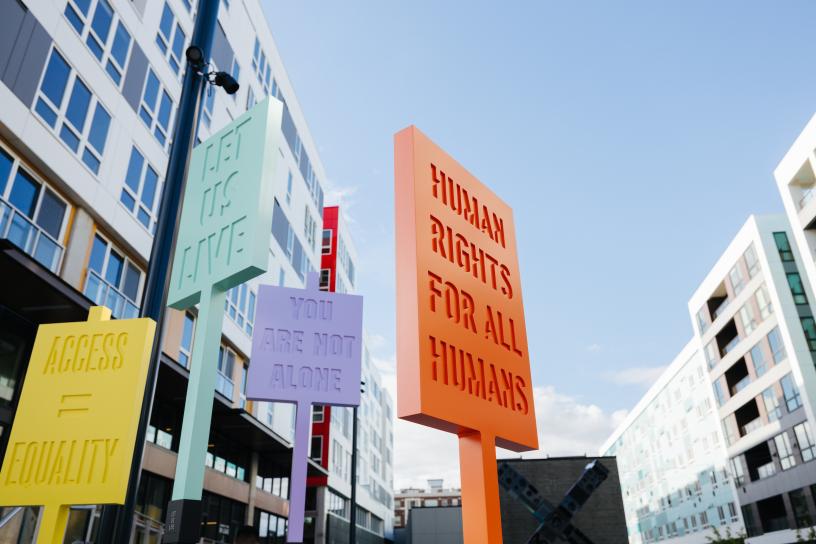The agency you know today as Sound Transit — officially known as the Central Puget Sound Regional Transit Authority — began in 1993 as a joint effort by the Snohomish, King, and Pierce county governments in western Washington state.
Three years later, Sound Transit District voters went to the polls and approved “Sound Move,” the fledgling agency’s initial 10-year plan to fund the creation of a high-capacity transit network to connect the growing region.
The 1996 vote authorized taxes for funding and the agency’s first light rail, commuter rail, and express bus projects. Learn more about our modes of service.
In September of 1999, the agency launched its first transit service: ST Express buses.
That fall, Sound Transit also celebrated moving into the headquarters we still occupy today: Seattle’s historic Union Station.
Expansion milestones
After Sound Move in 1996, regional voters continued to support further investments in transit, passing the ST2 ballot measure in 2008 and ST3 in 2016. Learn more about Sound Transit’s history of voter-approved plans.
Together, these programs paved the way for major expansion milestones like:
- 2000: Sounder train service debuts in the South Sound (now called the S Line) with an inaugural run from Tacoma to Seattle.
- 2003: Light rail joins the Sound Transit family with the opening of “Tacoma Link” (now known as the T Line).
- 2003: Sounder service expands north of Seattle (now the N Line) to Edmonds, Mukilteo, and Everett.
- 2009: “Central Link” (now the 1 Line) launches between Tukwila International Boulevard Station and Westlake Station in downtown Seattle. On July 19, more than 30,000 first-day riders try the system and cheer from the platforms. A few months later, in December 2009, service reaches SeaTac and the region’s bustling airport.
- 2012: Sounder S Line adds two more stations, at South Tacoma and Lakewood.
- 2016: Light rail ridership doubles when Link extends north to the University of Washington (March) and south to Angle Lake (September).
- 2021: As the global COVID-19 pandemic begins to recede, thousands of new passengers embrace transit when three new 1 Line stations open north of University of Washington: U District, Roosevelt, and Northgate.
- 2023: The Hilltop Tacoma Link Extension opens, doubling the length of Sound Transit’s first light rail project, the T Line, with six new stations.
- 2024: The first segment of the Link 2 Line, serving eight new stations over 6.5 miles between South Bellevue and Redmond Technology, opened in April. Link service crossed county lines for the first time when the 1 Line opened to Snohomish County in August. Extending north from Northgate, the 8.4-mile extension serves four new stations in Shoreline, Mountlake Terrace and Lynnwood.
Coming soon: Sound Transit’s system expansion program is now the largest in the nation. Explore more information to see what’s coming next!
Sustainability, equity, and transit-oriented development
2007: Sound Transit earns Environmental and Sustainability Management System certification at the ISO 14001 international standard for the first time. This certifies the agency’s commitment to procedures that identify and minimize our environmental impact across our operations — from energy consumption to waste management to reducing emissions. Adhering to ISO 14001 standards means preserving natural resources, reducing pollution, and promoting sustainable transportation practices, ultimately benefiting both the environment and the communities we serve.
2010: After promoting transit-oriented development and affordable housing throughout the late 1990s and early aughts, Sound Transit’s first TOD project opens its doors. Senior City at Federal Way Transit Center, developed in partnership with the Korean Women’s Association and Common Ground, provides affordable housing for older adults near transit in downtown Federal Way, on land we previously used for transit center and park-and-ride construction staging.
2011: Sound Transit officially establishes its now industry-leading Sustainability Program – an outgrowth of Board-directed sustainability initiative launched in 2007 – and adopts its first long-term Sustainability Plan with agency goals for improving quality of life in Central Puget Sound.
2015: As Sound Transit prepares the ST3 plan for its next stage of transit expansion, the Washington state legislature mandates that it include a transit-oriented development strategy that prioritizes much-needed affordable housing for our rapidly growing region.
2017: The agency develops its Equal Employment Opportunity program and establishes what we know today as the Office of Civil Rights, Equity, and Inclusion.
2017: Angle Lake Station becomes the first of many LEED-certified Sound Transit facilities, earning a Gold rating. LEED certification provides independent verification of a building's sustainable design and is the most widely used sustainability rating system in the world.
2018: In response to 2015 state legislation and winning ST3 vote at the polls in 2016, the Sound Transit Board adopts an Equitable Transit-Oriented Development policy, directing the agency to work with communities to develop TOD and affordable housing. The agency is now required to offer at least 80% of our surplus property that is suitable for housing to qualified entities to develop housing affordable to families at 80% of area median income or less.
2019: The agency adopts an official Equity and Inclusion Policy, embeds equity within its in Strategic Plan, and hosts its inaugural Equity Summit for staff.
2020: Sound Transit commits to becoming an anti-racist organization. The Office of Civil Rights, Equity, and Inclusion launches development of an initial five-year strategy to set the agency on its path forward.
2021: Amazon commits to $100 million in loan and grant funding to help create 1,200+ affordable housing units on Sound Transit sites.
2022: The TOD program gets another boost when the Washington State Housing Finance Commission pledges up to $200 million of affordable housing bond financing available to affordable housing projects on discounted Sound Transit property.
2022: Sound Transit earns the first Envision Platinum certification for a transit project in the Pacific Northwest, and only the ninth in the entire nation, for the Downtown Redmond Link Extension. This designation highlights sustainable infrastructure across entire projects and efforts to go above and beyond in improving the social, economic, and environmental conditions of the local community.
